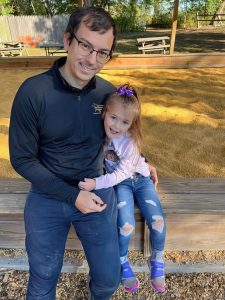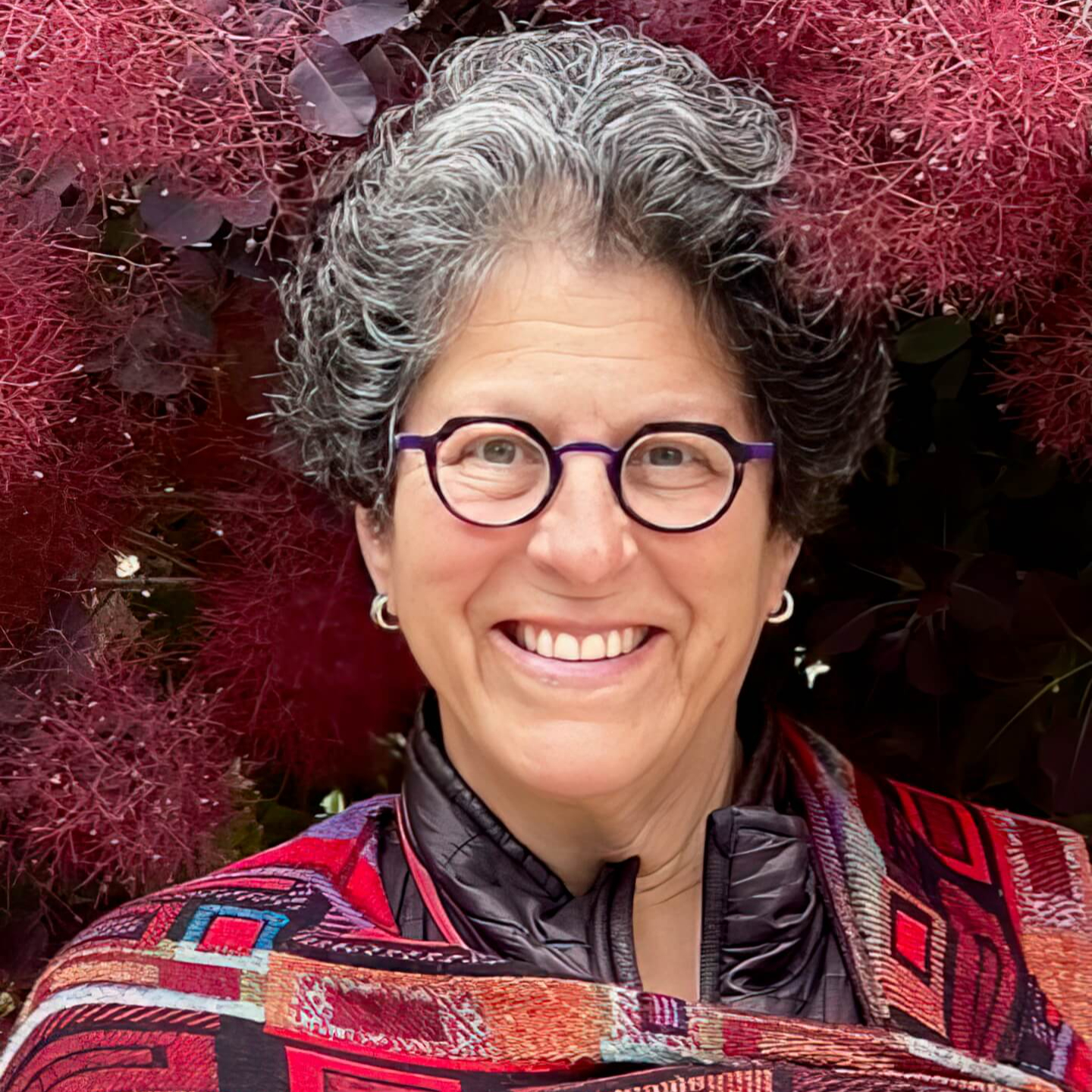The first time I noticed it was hard to hear was in 10th grade. Voices started sounding fuzzy, and sometimes I couldn’t understand teachers when they faced the blackboard. A screening test showed mild hearing loss, and given I had measles as a young child, the pediatrician said to have it checked again in a year. But it never happened. Family tragedy triggered a cascade of changes, and everything else became more important.
I found ways to make hearing happen: Turn up the volume, always sit up front, make sure to face whoever was speaking. Hearing some words in a sentence, I usually could figure out the rest. Sometimes, I just made it up. And somewhere along the way, I learned to read lips. First jobs and first loves, even graduate school at Harvard, I got by well enough.
I had no idea how hard my brain was working every day to make sense of every sound, every word. Until we moved from Boston, Massachusetts to Omaha, Nebraska at age 35 in Fall 1989. Like everyone else on the block, I was outside raking up last leaves before snows were forecast to hit. Sammy, not yet 2, took a tumble jumping into a leaf pile. But my back was turned, and I didn’t see him get hurt. Or toddle toward me in tears, or hear him cry Mommy! with outstretched little arms. Only when I felt his tiny hands grab the back of my legs did I spin around and swoop him up. Sam was just startled by a toddler’s toss into scratchy cottonwood leaves. But a week later, over coffee, a neighbor mom gently told me what some of the biddies on the block were saying. I might be like one of those cold East Coast moms, ignoring a hurt child!
1995 News: Magda with sons, Sam (L) and David (R)
That’s not what I think, she was quick to add. Turns out my new neighbor was director of audiology services at Boys Town National Research Hospital, one the country’s top spots for treating childhood speech and hearing disorders, headquartered in Omaha. She noticed I didn’t react when the phone rang, or when Sammy called out from the other room for me to come see what he was making with Legos. When she asked about my hearing, I told her about once being diagnosed with mild loss, in my teens. That’s how I ended up in her lab the next Saturday, which revealed “moderate to severe sensorineural loss, especially in higher frequencies.” She explained that the tiny hearing organs in my inner ear likely were damaged, and hair cells lining the cochlea were not transmitting sound vibrations to the part of the brain that recognizes, processes and stores sound. She offered me a loaner set of hearing aids that afternoon. Everything changed.
Hearing loss hit me earlier than most. I was just 35. But no matter what age you are, it’s a jarring experience the first time hearing aids are turned on. Suddenly, everything was odd, unfamiliar, and so loud. What is that noise? My brain went on overdrive, trying to make sense of every sound: Birds singing. Leaves rustling in the wind. Raindrops tap tapping the window pane. The overpowering sound of my own voice. Sammy’s plastic Legos clinking together as he built more houses. And, in another year, his baby brother David’s coos and cries.

Sam and Eleanor
I embraced every emerging hearing technology with gusto. Digital hearing aids. Then programmable digital aids with changeable settings for variable environments: noisy restaurants, symphony music, outdoors, and every day. Closed captioning for TV, movies, and eventually Zoom. When Bluetooth arrived, I swooned. Telephone conversations became intimately clear, and music transmitted through my hearing aids sounded beautiful, again. For more than 30 years, with all my tools and tricks, I could make hearing happen well enough, until I couldn’t. I stopped hearing doorbells, telephones, and alarm clocks. High-pitched kitchen beeps that tell you when something’s done, or wrong. Son Sam phoned with news of his daughter Eleanor’s birth. As she became a toddler and we’d cuddle up on morning visits, I could only pretend to understand her whispered secrets.
Then the Pandemic hit – everyone masked up, making it impossible to read lips and harder to hear. Eventually an ENT specialist suggested I go across the Bay from my home in the Richmond Bay area to the University of California, San Francisco Cochlear Implant Institute, to find out if I would be a good candidate for a cochlear implant (CI). Really? I always assumed that no matter how bad it got, I’d just get by with better hearing aids, or figure something else out.
For two hours in a windowless testing booth, the CI audiologist put me through the wringer. No matter how hard I willed myself to understand what the disembodied male voice was asking me to repeat, I just couldn’t. The results were stunning: “severe to profound loss, worse on the right side.” Aging had begun to take its toll, on top of prior infections and unlucky genetics. I knew that nearly 80% of people over 70 have some hearing loss, most often having trouble understanding conversations, especially in noisy conditions. About to turn 68, my hearing organs had begun to show their wear. And, yes, I qualified for cochlear implantation.
What’s next? I asked. Outpatient surgery at UCSF for cochlear implantation on the right side. A new hearing aid on the left side would work seamlessly with the CI for stereo sound.
Then the harder work would come: I would need to retrain my brain to make new sense of sounds: hours of hearing therapy and practice, every day, for 6 – 12 months. And as with any surgery, there were risks. Scary stuff. But what I remember most about that life-changing visit was the last thing she asked: Magda, aren’t you tired of working so hard? I wonder what you will do with that big brain of yours when you don’t have to use it all the time simply to hear?
Magda and Dr. Charles Limb pre-surgery
Early one morning in June 2022, two friends accompanied me to outpatient surgery – one is a pediatric hearing and speech therapist. I was now in the capable hands of Dr. Charles Limb – world-renown neurotologist, skull base surgeon, and musician.
After two weeks of steady healing, I returned with my friend to the audiologist to activate and program the 22 electrodes inside my cochlea.
Suddenly, there it was! A voice. Inside my head. Magda, can you hear me?
Her voice sounded awful. Remember the TV show All in the Family? How Edith Bunker’s voice was squeaky and super high-pitched? Now add helium: it was screechy and weirdly robotic. But I understood every word! When she asked me an unexpected question about the color of my shoes, I launched into a fashion apology for having worn brown shoes with a black knit suit. I saw them look at each other, tears brimming, amazed. Hearing with comprehension at activation is not a common experience.
As instructed, I practiced every day for months to hear anew, and it got better and better. This is what my hearing life is like today. Every morning, when I put on my CI system and add the new hearing aid, I go from near deafness to almost 90% hearing in less than 30 seconds. Now I engage in great conversations with ease – in the car, in noisy restaurants, on the trail. On steep weekend hikes, I’m serenaded by boisterous birds, and wondrous waterfalls sing their hymns. At an all-Beethoven live musical performance, when Yo Yo Ma’s bow kissed his cello, I wept in awe.
Magda with Eleanor
As I near 70, I’m readier to age even stronger. Not having to work so hard to hear gives me more energy to live well, with joy. Now when I visit Sam and his family, and 5-year-old Eleanor climbs into the guest bed, eager to cuddle up, she knows to ask: Gramma, are your hearing tools in yet? And she tells me her stories, under toasty morning covers, whispering sweet secrets. I can hear every sacred word, for real.
Magda Peck tells stories to ignite ideas and inspire change for the greater good. Based in Northern California, she works with leaders and communities as a “story strategist” and leadership catalyst, to translate data into action for healthier women, children and families. Find out more at magdapeck.com and squarerootstories.com.


I am moved by your story and am so happy you can hear your granddaughter’s morning secrets. Beautiful
Such an amazing journey…
A lovely story about one woman’s journey to have good comprehension and hearing. I hope every reader who finds her/himself asking, “What did you say?” gets their hearing tested. Comprehension can spiral downward quickly when one’s hearing is affected.
It was an honor to be on this journey with you, Magda. Thank you for sharing your inspiring story, The best part of all is hearing your grandchildren’s sweet voices!
Magda, super happy for you! Next time we hike, let’s do some birding by ear!